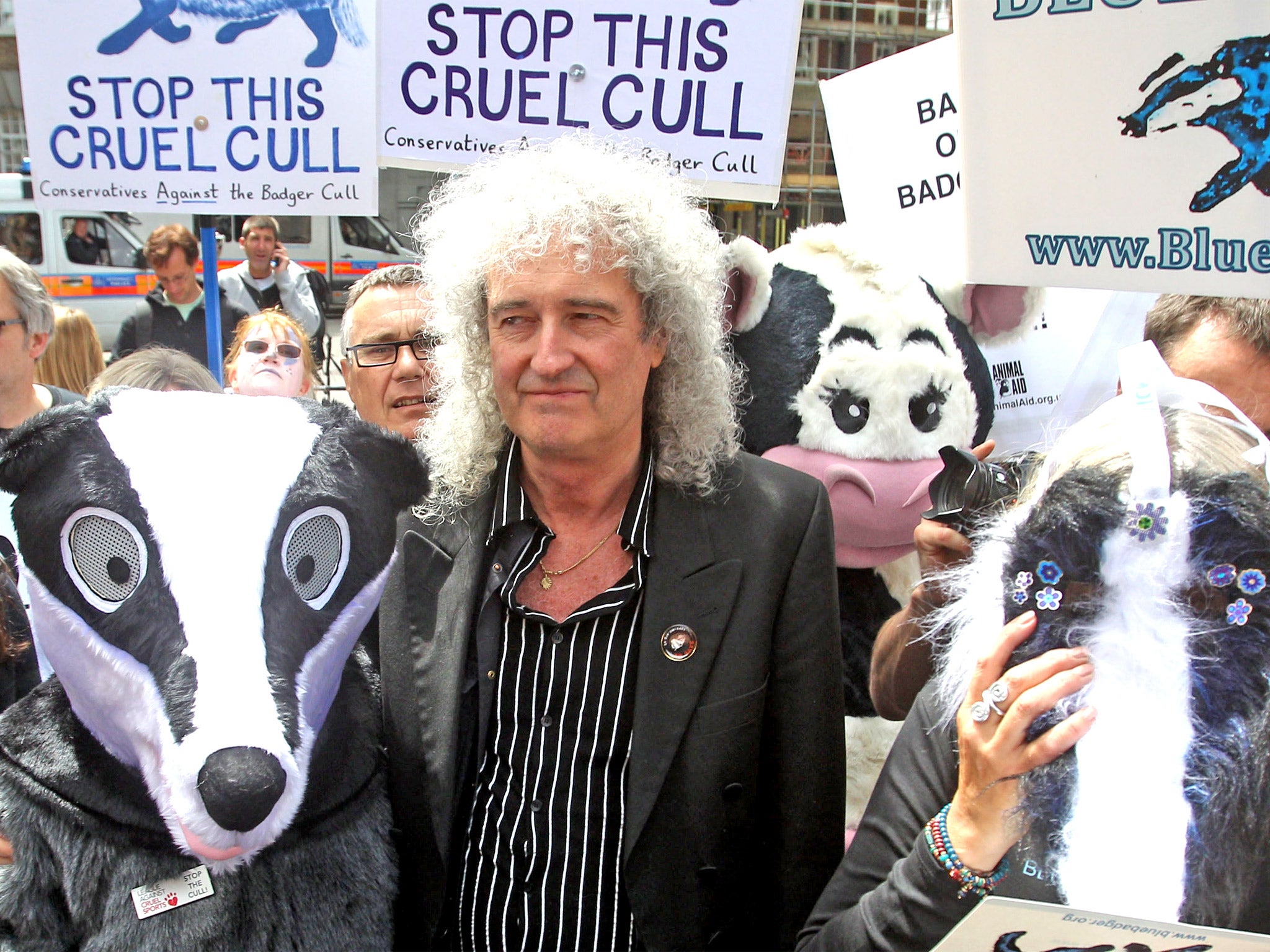Vets say their professional body was wrong to support Government badger cull
Veterinary Association accused of being too close to farmers in letter to The Independent

The professional body for vets has cast a “dark shadow” over the profession by supporting the Government’s badger cull, according to a group of veterinarians who claim its senior officials are too close to the farming industry.
Members of the British Veterinary Association (BVA) have launched a fierce attack on their representative body for failing to consult its full membership before endorsing the cull.
The trial badger cull officially began in Somerset and Gloucestershire on Saturday, although the first animals are not expected to be killed for at least another week. The cull aims to reduce tuberculosis in cattle by killing infected badgers that help spread the disease. But in comments exposing a rift within the ranks of the BVA, a group of academics and practising vets accused the body of acting out of “expedience”.
In a letter published in today’s Independent, they claim the BVA has supported the cull “in spite of the overwhelming scientific opinion that culling badgers will not help reduce TB in cattle”. They also argue that the body should withhold its support at least until much more is known about the humaneness of the cull and how it will be measured.
“The public needs to understand that the BVA’s position is not necessarily representative of majority veterinary opinion and that many vets oppose or have serious reservations about the policy,” said the letter, which has 11 signatories, including Alasdair MacMillan, former chief scientific officer at the RSPCA. Four of the signatories are BVA members.
“It represents the position of an organisation that, in our view, has lost touch with its key purpose of providing leadership on animal welfare on this issue and whose judgement is being influenced by a close historic alignment with the farming industry.
“That some vets in positions of influence appear to have abandoned precaution for the sake of what appears to be political and perceived economic expedience casts a dark shadow over our profession,” says the letter, which is also signed by Caroline Allen, a practising vet and spokesperson for the Green Party and Mark Jones, executive director of Humane Society International, the animal protection group.
Responding, the BVA president Peter Jones said: “We know that culling badgers reduces the incidence of bovine TB in cattle. We want to see healthy cattle and healthy badgers and we have been insistent that measures to control bovine TB in wildlife must be humane.
“We do accept that not every member will agree or have an opinion on every BVA policy, but through our committee system and Council, which includes elected representatives from every region of the UK, we are able to give every member a voice. The majority of your correspondents are not BVA members and would therefore not have had the opportunity to take part in the policy-making process,” he added.
Some opponents of the badger cull argue that it is an ineffective way of reducing TB in cattle and could even exacerbate the problem because fleeing badgers could spread the disease more widely. They put the main reason for the spread of the disease down to the movement of infected cattle across the country.
The trial culls aim to kill about 5,000 badgers, or 70 per cent of the estimate population in the two culling zones. If these culls are deemed to be humane, efficient and safe, the Environment Secretary Owen Paterson plans to extend them to a further 40 zones over the next four years.
The vets’ opposition to the cull comes as a new government select committee report today warns that vaccinations – seen by many opponents as a key alternative to culling – were “no magic bullet”.
“While progress to develop vaccines is clearly being made, debate on this subject has been characterised by lack of clarity leading to poor public understanding. The Government must share a great deal of blame for this,” said Anne McIntosh MP, chair of the Environment, Food and Rural Affairs Committee.
“We should use every tool to combat this disease, but vaccination alone will not provide a complete solution. Vaccines have no impact on already infected animals, and will be expensive to deploy,” she added.
Subscribe to Independent Premium to bookmark this article
Want to bookmark your favourite articles and stories to read or reference later? Start your Independent Premium subscription today.

Join our commenting forum
Join thought-provoking conversations, follow other Independent readers and see their replies